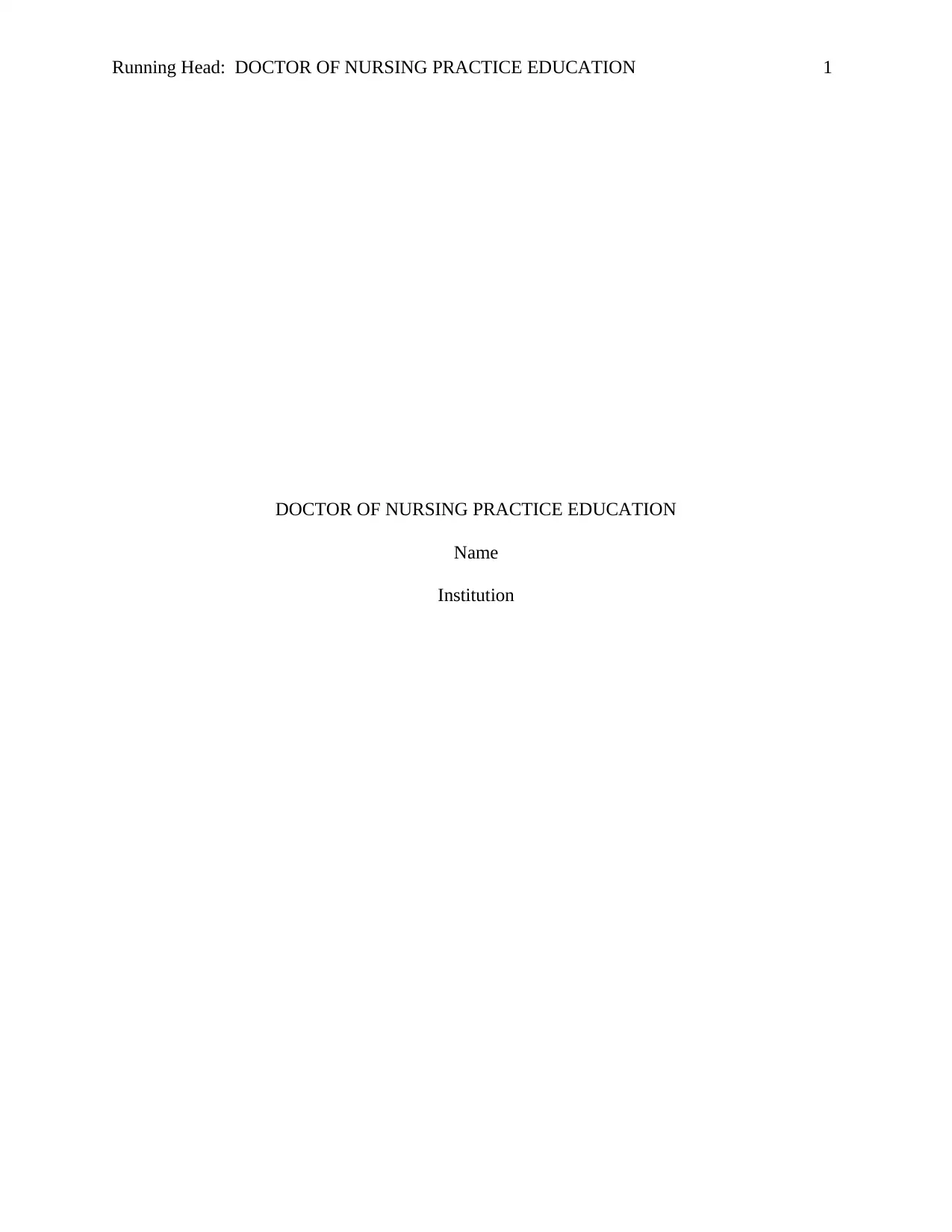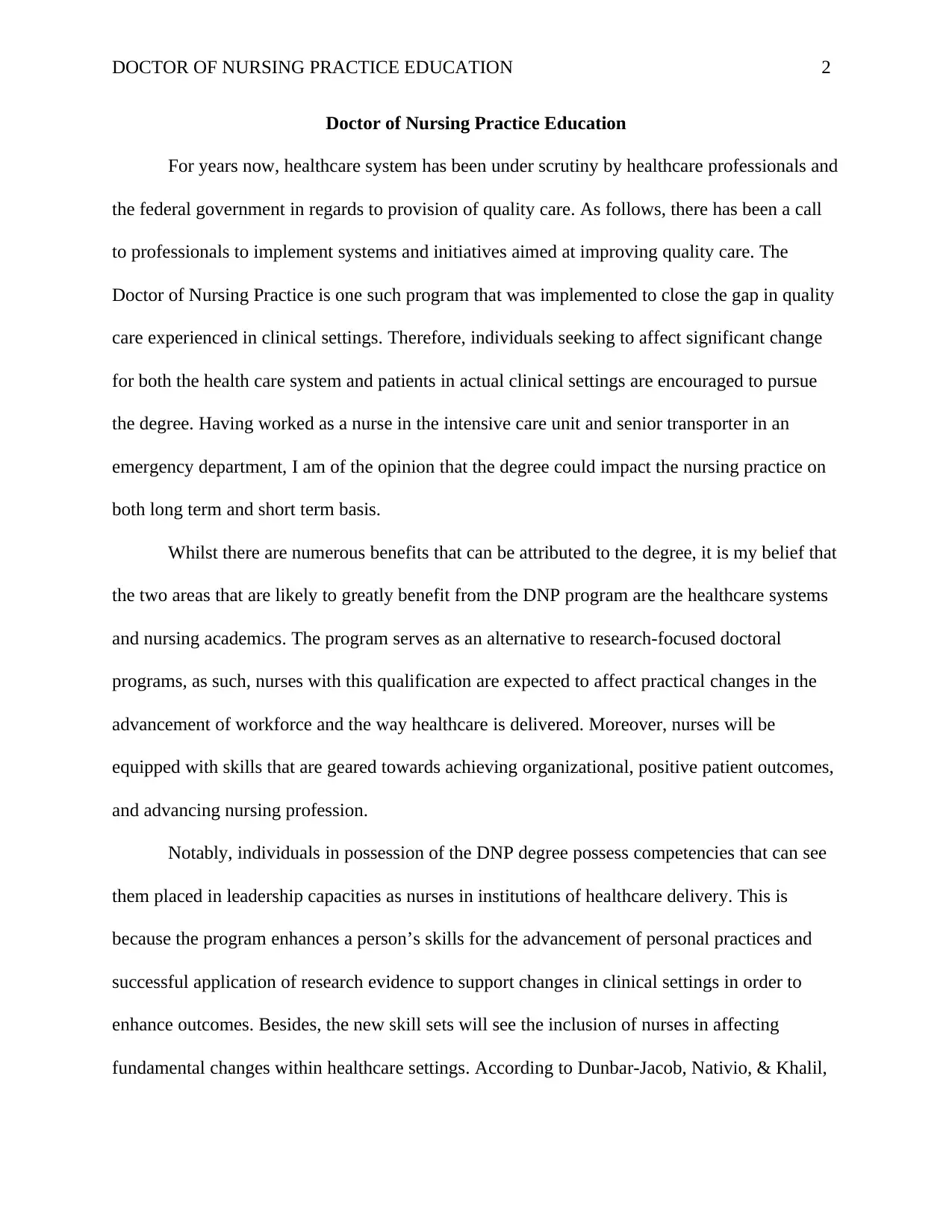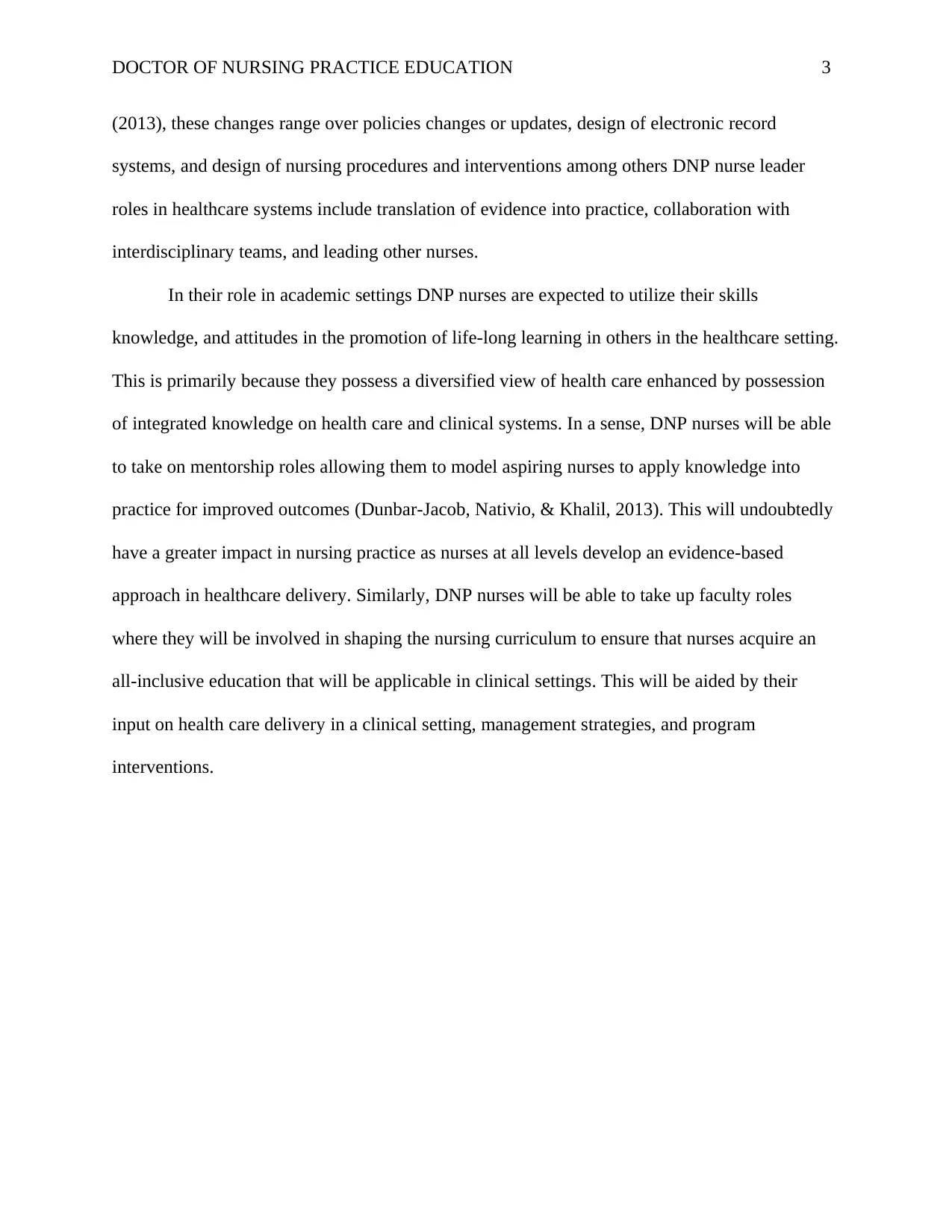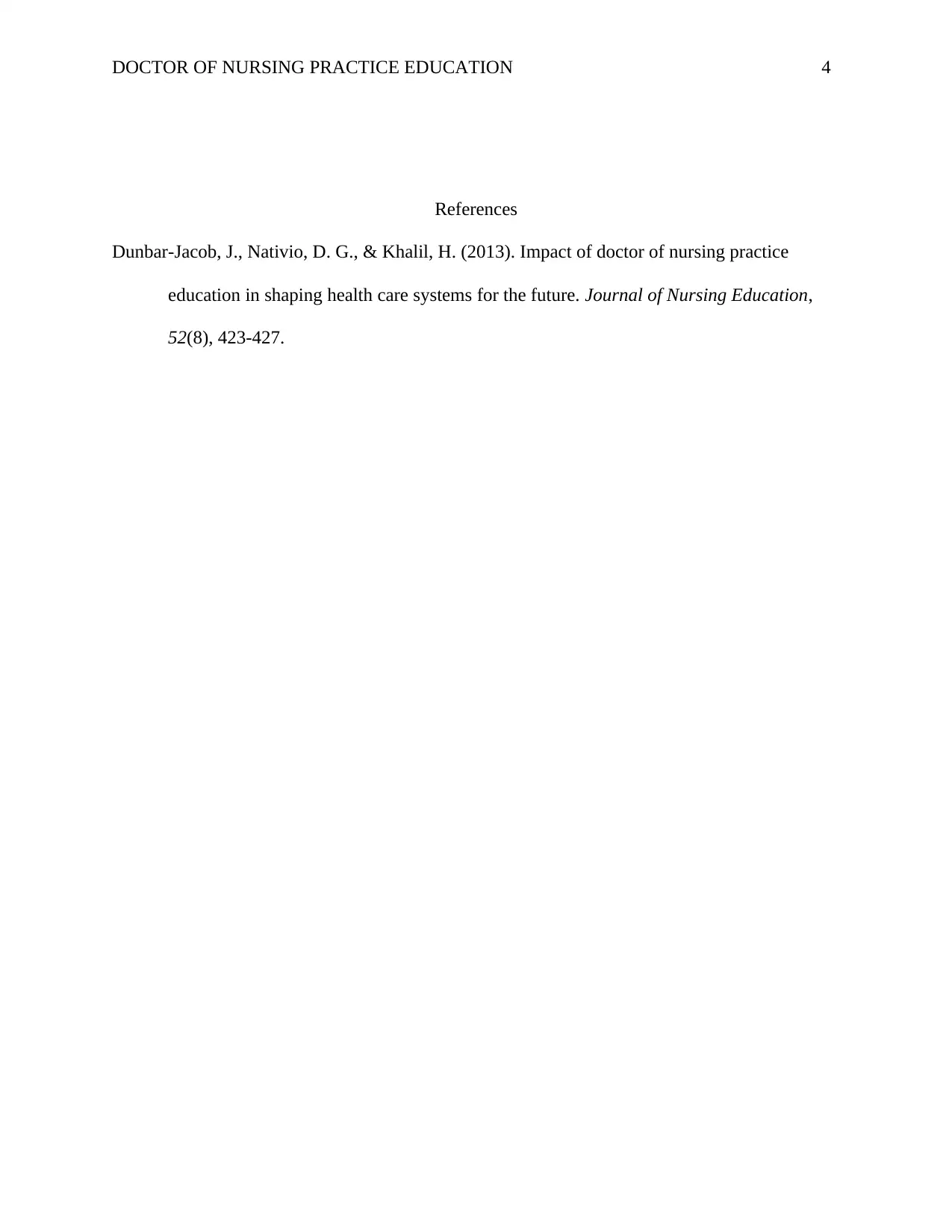Doctor of Nursing Practice Education: Impact on Healthcare & Academics
VerifiedAdded on 2023/05/30
|4
|643
|299
Essay
AI Summary
This essay discusses the impact of Doctor of Nursing Practice (DNP) education on healthcare systems and nursing academics. It highlights the growing need for quality care and the role of DNP graduates in bridging the gap in clinical settings. The author, drawing from experience in intensive care and emergency departments, argues that DNP education significantly benefits healthcare systems by equipping nurses with skills for organizational improvement, positive patient outcomes, and advancing the nursing profession. DNP-prepared nurses are positioned for leadership roles, enabling them to translate evidence into practice, collaborate in interdisciplinary teams, and lead other nurses. In academic settings, DNP nurses promote lifelong learning, mentor aspiring nurses, and shape nursing curricula to ensure practical applicability in clinical settings, ultimately fostering an evidence-based approach to healthcare delivery.
1 out of 4











![[object Object]](/_next/static/media/star-bottom.7253800d.svg)